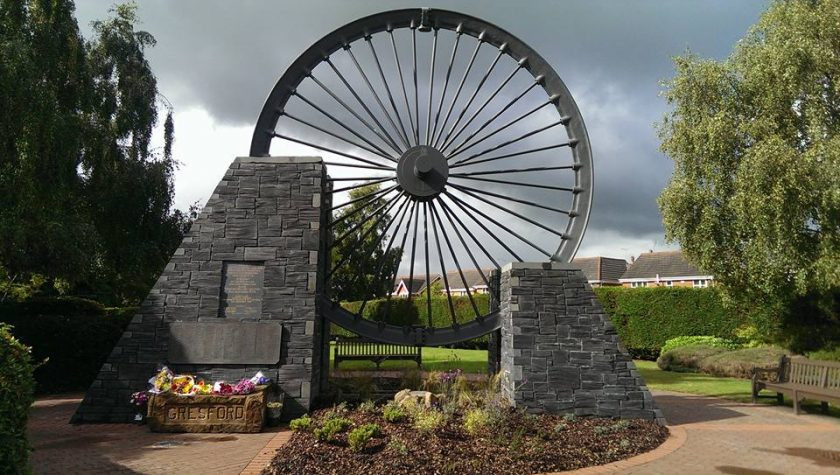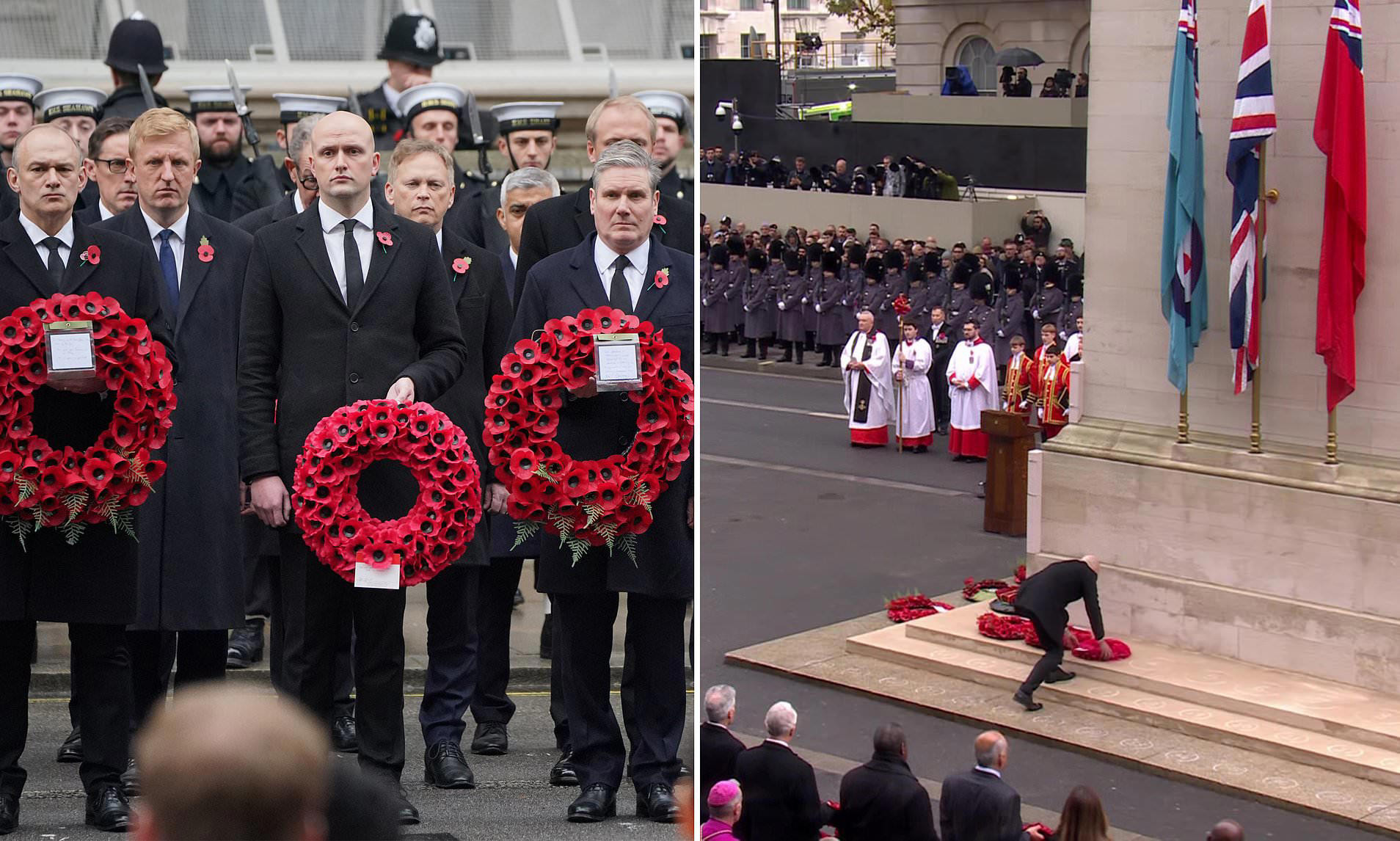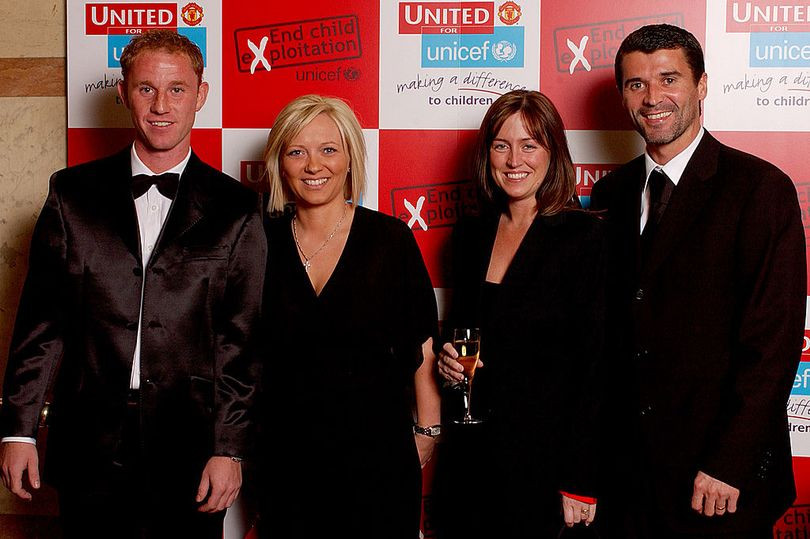Wrexham AFC met Crawley Town FC this afternoon (Saturday, September 21) on a hugely significant day for the club as it commemorated the 90th anniversary of the Gresford mining disaster.
A minute’s silence was held ahead of kick off as fans, players and staff paused to remember the 266 people who lost their lives in the early hours of September 22, 1934.
More than 500 men were working within the mine on the night of September 22, with many doubling on shifts to watch Wrexham play Tranmere Rovers at the Racecourse Ground later that afternoon.
The club has maintained a close connection with the mining community since that fateful day. Anniversary shirts have been donated to the Miners Rescue Station, tributes have been paid on kits, as well as the minutes of silence to remember those that lost their lives.
A remembrance wreath was also laid on the pitch ahead of the game, created by local florist Regent House of Flowers.
The significance of the day could not be overstated, with the club keen to honour those families who continue to be deeply affected by what remains one of Britain's worst mining disasters.
Speaking to Wrexham AFC on Youtube ahead of the game, Phil Parkinson said: “The disaster had a huge impact on the area and it’s very important from my point of view that the staff and all the players understand what this weekend means to everybody in Wrexham and the surrounding area.”
The manager, who had been visiting the Wrexham Miners Project, added that players were shown newsreels of the Gresford mining disaster in their team meeting, to outline its significance to the community.
Remembering the Gresford Mining Disaster
When a huge explosion ripped through the mine during a night shift at Gresford Colliery in 1934 it caused the deaths of 266 men and boys, and left a community in tatters. The tragedy, in the early hours 90 years ago Sunday, is one of Britain’s worst ever mining disasters.
There was nationwide anger at the time as colliery bosses refused to give grieving relatives the pay for the shift. The Daily Mirror organised a relief fund to help the families – and our loyal readers raised what would be millions of pounds in today’s money. One of our front pages back then said: “A family of nine young children is fatherless; a bride of a week ago is a widow; a girl who had just finished her wedding dress is wearing black and two mothers have each lost three sons.”
Now relatives of those who died in the disaster in Gresford near Wrexham are coming together to ensure the miners are never forgotten. There are many Remembering Gresford events across the area. Wrexham football club are also supporting the memorials. The club’s owners, Hollywood stars Rob McElhenney and Ryan Reynolds, arranged for the year “1934” to be sewn on the team’s away strip.
Some of the miners died because they swapped shifts or did double shifts so they could be free to watch Wrexham play at home against Tranmere hours later. Husband and wife Al and Margaret Jones, both 78, are among those who are honouring the men and boys killed on September 22, 1934. Al’s grandad Josiah Jones changed shifts with his cousin Jabez Jones, who subsequently died in the disaster. Jabez’s brother-in-law, William Lloyd, also perished.
Margaret, secretary of Friends of Gresford Colliery Disaster Memorial, said: “There are still over 250 men entombed down there. It’s so important that they are remembered every year. They waited 48 years to have a memorial, but now they have one.”
Mining historian George Powell, of the Wrexham Miners Project, said: “Wrexham were playing Tranmere at the Racecourse Ground, and [the miners] were working a double shift so they could go to the game. It was Friday when they started, and the explosion happened in the Dennis shaft in the early hours of Saturday morning. They couldn’t recover 255 of them and they’re buried down there, many with their pay packets in their pockets. The owners refused to pay the families because they said the money had already been paid.”
Only 11 bodies were ever recovered. All the remaining 255 men and boys remained entombed underground in sealed-up tunnels. Of those who were killed, 38 had the surname Jones. There were 19 called Davies, 18 called Roberts and 12 with the surname Williams. The youngest victim was Bill Jones aged 14. He was one of 10 who would never reach their 18th birthdays.
The Lasting Impact of the Disaster
Professor Joe Yates, vice-chancellor at Wrexham University, said: “The Gresford mining disaster is a devastating part of Wrexham’s history – and one of the worst coal mining disasters in British history. It impacted the community across Wrexham, with every village in the area losing someone. I also know that many colleagues have loved ones who were impacted by the disaster, which is why we feel it is important to take time to remember those men and boys who lost their lives.”
An official inquiry was held to try to determine the cause of the explosion but it proved inconclusive. It is believed a build-up of gas was ignited by a spark from a metal tool. The massive blast then caused a fire deep underground. The inquiry led to the mine’s manager William Bonsall being charged with failing to keep records of air flow and was fined £40 with £350 costs – a total of about £20,000 in today’s money.
A range of memorial events are planned for this weekend. Wrexham brothers Jonathan and Robert Guy, the founders of the NEW Sinfonia orchestra, have worked with the Wrexham Miners Project to organise the local commemorations, with support from the Arts Council of Wales. A woman whose father narrowly avoided being caught up in the disaster is singing in a new opera marking the tragedy’s 90th anniversary.
Ivor Owen Bellis injured his hand while down the pit on the night before the deadly explosion. When the small cut turned into a large and painful blister, the 18-year-old’s concerned mother refused to let him go to work. Now, 90 years later, his daughter, Gillian Davies was determined to be part of the new community opera, Gresford: Up From Underground. She said she might never have been born had it not been for what she described as a strange twist of fate.
The 70-year-old will be a member of the New Voices choir that will be performing the opera with the NEW Sinfonia orchestra at one of the Remembering Gresford events in Wrexham to mark the milestone. Gillian said: “If it wasn’t for my grandmother insisting he stay at home, Dad might have been among those killed. His mother woke him up in the morning to give him the dreadful news after she heard it on the radio. So many of his lifelong friends and workmates were killed. It’s impossible to imagine how devastated he felt. Our father often told us the story of the disaster as my sister Lynne and I grew up. He told us he was the luckiest man to be alive.”
There will also be a poignant candle lighting ceremony today to mark the men and boys descending into the pit for the last time. The Wrexham Miners Project will light 266 candles – one for each life lost. A vigil will then be held until 2.08am tomorrow when the candles – shaped like Davy lamps – will be extinguished. This will be the same time and date that the blast erupted and fire engulfed the Dennis section of the colliery.
Albert Rowlands, who was a teenage lamp boy at the colliery when disaster struck, was the last of the survivors. He died in 2020 at the age of 100.
A Lasting Legacy
Cyril Crump, now 94, was just four years old when the disaster took the life of his father, William. He shared his memories with the Leader, a local publication.
“All I can remember is my father putting his hand through my hair and telling me he'd see me when he got home, but he never came home.
“It all happened so quick and at the age of four you don't really know what had happened, it's only until later that you realise what had gone on.
“Nobody would speak about it, people were in the dark about it until you got older and found out, but attitudes had changed because of the disaster.
“We had no money from the fund, I can't remember getting anything. All my mother had was around £1.76 to provide for the four of us.”
Seven years after the disaster, Cyril's mother passed away which led to him being taken in by his auntie and uncle.
With a lack of income following his father's passing, Cyril began working at the age of five in a bid to earn some money.
He added: “Our auntie and uncle ended up taking us in, they helped with evacuees too and there were four of us in a bed.
“There was no money, if you wanted money you had to work so I started helping to deliver milk on a horse and cart through Bradley when I was about five or six.
“I also delivered papers, but I couldn't keep the money, I had to hand over my packets to my auntie and uncle and waited for whatever they gave me.”
As he grew up, Cyril undertook a stint in the forces, before returning to Wrexham and getting a job in a workshop at Llay Colliery.
One day, following a breakdown at the Gresford Colliery, Cyril followed in the footsteps of his father and headed down the Dennis shaft to make repairs.
Cyril said: “I managed to get a job as a mechanic before I had two years of national service in the forces. I spent most of the time in Germany.
“When I got back, I was due to return to my previous job, but things had changed so I got a job in the workshops at Llay Main Colliery. I never thought I'd have to go down the pit and I never wanted to either.
“There ended up being a breakdown in the pit at Gresford which was about three miles long. I had to go down the Dennis shaft to fix it and we were down there a long time.
“The further you went in, the smaller it got and you did wonder what you were getting yourself into, you were going into the dark.
“Even though I wasn't a miner, I'd experienced what my dad had done. My brother Bill also worked down the pit.”
The night of the Gresford disaster had been a busy shift as many miners were ‘doubling up’ so they could watch the Wrexham match on Saturday afternoon against Tranmere Rovers.
Cyril has been supporting Wrexham for almost 90 years and would regularly watch games in the Kop stand.
The Gresford Disaster and Wrexham AFC will forever be connected and Cyril has been a lifelong fan, attending games for almost 90 years.
In addition, he has completed a lot of volunteering for the club over the years and was recognised for his efforts with an award in 2007.
He added: “I've been supporting Wrexham for close to 87 years and have only stopped going to the games in the last two or three years.
“I would go on my own but it's difficult when you're my age. When I was younger I'd always be in the Kop but recently I was in the Mold Road stand.
“They're doing brilliantly at the minute, I still can't believe they are top of the league!”
The Gresford mining disaster, a tragedy that claimed the lives of 266 men and boys, serves as a reminder of the courage and sacrifice made by those who worked in the mines. As Wrexham FC paid tribute to the victims, it also highlighted the lasting impact of the disaster on the community and the resilience of those who have never forgotten the lost lives.

















